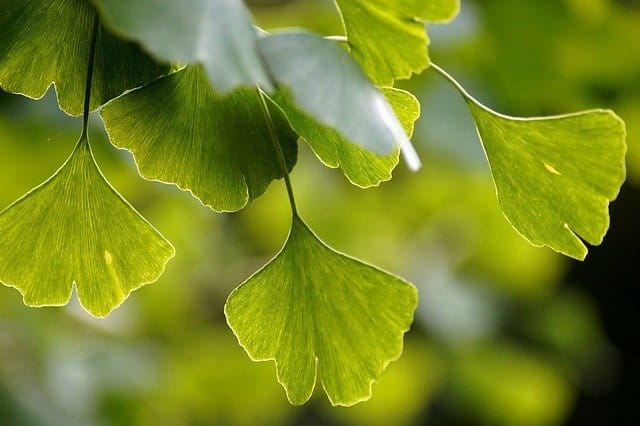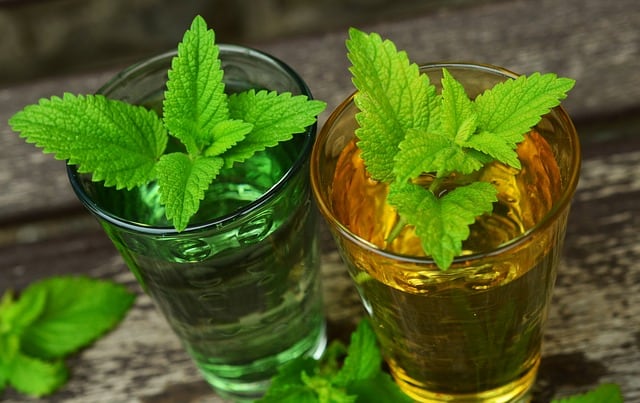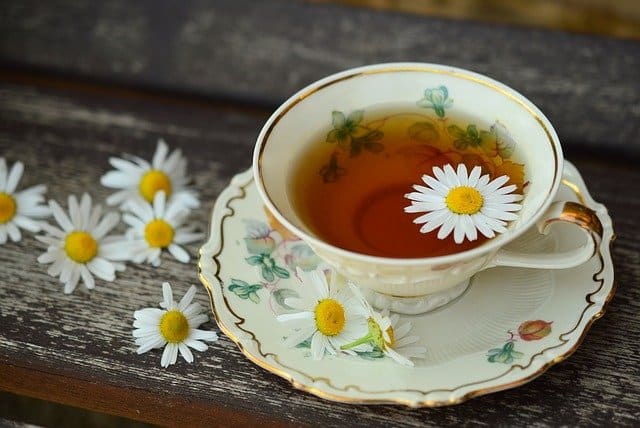Natural remedies for anxiety can be your best friend when treating anxiety. Many efficient, safe herbs for anxiety treatment show that in modern medical investigations. Many have use it for hundreds of years.
Unfortunately, many of these herbs have not been appropriately investigated in laboratories. And hence are not available in tablet form to the general population to treat anxiety disorders. This article uses contemporary medical knowledge. With old wisdom to give what are the best herbs for anxiety and supplement for natural anxiety treatment.
Ginkgo Biloba and Magnesium

The herb, ginkgo biloba and magnesium are the two herbs repeatedly demonstrate to be the most beneficial in clinical trials for what are the best herbs for anxiety and depression. Ginkgo biloba improves blood flow, cognitive function, and oxygen and energy metabolism.
Magnesium is an aid in the regulation of mood and blood pressure. It is also the maintenance of a healthy heart and nervous system. These two plants, taken as supplements, are the most effective anxiety and depression remedies available. On ADHD snap, you may learn more about neurotransmitter support for brain balance.
Is there a herbal remedy for anxiety that works? What are the best herbs for anxiety? For some people with moderate to severe anxiety. Finding a herbal cure that works for them is more enticing than taking prescribed medication. Although medication may be the best option for some, the risk of side effects might be a deterrent.
When considering any anxiety remedy, herbal or otherwise, speaking with your doctor first is critical. Are you seeking natural anxiety remedies? To assist you in deciding where to begin. Look at what are the best herbs for anxiety. These are some of the best all-natural options for anxiety relief.
Anxiety Herbal Medicines That Work

Wort of St John’s
(Hypericum perforatum L) St John’s Wort, a perennial with vivid yellow blooms that grow wild in Europe, Asia. And America, has been use for nerve problems for over 2,000 years. Several pieces of research have shown that St John’s Wort has anti-inflammatory properties.
It can help people with depression and mild anxiety, though it’s unclear how. The drug is supposed to have the ability to extend the effects of serotonin. A neurotransmitter in the system that, when in limited supply, can cause mood swings.
What you should know about St John’s Wort before using it:
• It is available without a prescription over-the pharmacies.
• It may interact with other medications, such as contraception and antidepressants. You should always check with your doctor before using it.
• It is not recommended to intake during pregnancy and breastfeeding.
• It may make you more sensitive to the light.
Other herbs with similar healing effects include St. John’s Wort, Passionflower, and ginseng. Some people believe they can help prevent cancer and slow down aging. These plants are accessible over the pharmacies at health food stores. And some companies offer powdered natural supplements for anxiety to consumers.
Valerian
Valerian is a common herbal medication for anxiety in the United States. This herb comes from a plant long ago used as a sleep aid and muscle relaxant by people worldwide. Valerian has been found in numerous trials to alleviate sadness and sleep disturbances symptoms.
While there is no definitive evidence that Valerian increases the risk of addiction. Many people who use it as a sleep aid believe they have developed a habit. The FDA has issued a recommendation against its usage as a result of this risk. Much natural anxiety and depression supplements work by improving the body’s ability to cope with stress.
Many natural herbs have potent antidepressant qualities. Making them effective in treating anxiety disorders. Nettle, catnip, and lemon balm are popular herbs that aid patients with depression symptoms when taken daily.
Valerian has traditionally alleviated anxiety, stress, muscle tension, and sleeplessness. It is native to Europe and North America. It includes valerenic acid and Valerian. Which assist the body to relax into a tranquil state, allowing for natural sleep.
What you should know about Valerian before taking it:
The valerian herb should not combine with any other sleep aids. Consuming it is not recommended whenever you are breastfeeding or pregnant. The use of valerian isn’t appropriate for children. Taking this can make you drowsy, so don’t take it before driving. Or doing anything else that needs you to be attentive. Lemon balm hops and passionflower are some herbs use with valerian.
Passionflower
Passionflower, like Valerian, is known for its relaxing and sedative properties. Which can aid in the treatment of anxiety, exhaustion, and sleep problems. Alkaloids, glycosides, and steroids are active ingredients, with alkaloids serving as the most important.
What you should know about passionflower before taking it:
• It is not recommended for use during breastfeeding or pregnancy.
• It can be mixed with Valerian and hops for a more potent effect.
Lavender
Several studies have found that lavender effectively reduces anxiety and stress, calming anxiousness and aiding sleep induction. Lavender not only has a great scent but also has a calming effect.
What you should know about lavender before using it:
• Lavender use may be detrimental to young males and girls since it may disrupt their hormones. Before using lavender on pre-pubescent children, talk to your doctor.
• If you’re pregnant or breastfeeding, talk to your doctor before using lavender.
• If you’ve recently had surgery, talk to your doctor before using lavender. Because it can slow down your nervous system and make recovery more complex.
Chamomile
Chamomile is traditionally use to treat stomach aches, colds, and fevers. It’s now most commonly consumes as a tea. And it’s well renown for its calming and relaxing characteristics.
Balm With Lemon
This tangy-scented herb is a member of the mint family. And it’s thought to help you relax. Like lavender and chamomile, Lemon balm claims to promote restful sleep and is a potent antioxidant.
CBD (Cannabidiol)
Cannabidiol (CBD) is a cannabinoid molecule found in cannabis plants. CBD’s use and popularity for reducing anxiety and promoting relaxation. It have grown in recent years, and some research indicates that it can assist. However, please consult the doctor before using it because this is a relatively new field of study.
Cannabidiol
Among all of the most important components in cannabis is cannabidiol. Cannabidiol (CBD) may have a soothing impact on the central nervous system, according to research published in 2019.
Even with the fact that the FDA has not yet approved CBD for use. This natural substance is widely available in the following forms:
- Tablet
- extract in liquid form
- liquid for vaping
- lotion for the skin
The study, as mentioned earlier, looked at whether CBD could aid in the treatment of anxiety and sleep issues. The analyzed data retrospectively from adults. Taking it as a supplementary therapy for sleep difficulties and anxiety. Within the first month of taking CBD, 57 of the 72 adults in the final group reported an anxiety reduction.
Throughout the three-month trial period, these scores remained low. CBD was found to be beneficial by the researchers. It could help those suffering from anxiety problems. On the other hand, clinical trials require to confirm these findings.
Ashwagandha
Ashwagandha is an evergreen plant native to Asia and Africa. It is used for centuries as a medicinal herb. It’s a stress reliever and an analgesic that calms the nervous system’s pain response. It may find in numerous herbal teas and supplements at Holland & Barratt. Where it is praise for its ability to alleviate anxiety and tension.
Galphimia Glauca
The plant Galphimia glauca is native to Mexico. It was originally use as a sedative to relieve nervousness. The effectiveness of G. glauca as a therapy for GAD studied in clinical research conducted in 2012. For 12 weeks. They give the participants either G. glauca or lorazepam, a prescription antianxiety medication.
Researchers followed up with the patients for another three weeks to see. If they were experiencing any withdrawal symptoms. Compared to those who took lorazepam, participants receiving a daily dose of 0.175 mg of G. glauca demonstrated a larger reduction in GAD symptoms.
Both therapies were completely risk-free. The data for G. glauca as a treatment for anxiety is promising. According to a 2018 review trusted Source. However, medicinal businesses have not fully realized its potential due to a scarcity of plant material.
Kava
A shrub plant known as Kava kava or found only on the islands of the Pacific Ocean. Its scientific name is Piper methysticum. Kava is a ceremonial beverage from the Pacific Islands to relieve stress and alter the mood. The kava’s treatment effectiveness for GAD explored in a placebo-controlled experiment in 2013.
Seventy-five people joined in the 6-week trial. Each individual has one of three treatments: Kava extracts in 120 mg or 240 mg daily doses or a placebo. Compare to those who have an effect of placebo. Anxiety levels were significantly reduce in those who took kava. Suggesting that kava could be a useful GAD treatment that is only temporary.
In the study, kava was also shown to be safe. Before, the Food and Drug Administration (FDA) issued a warning that kava supplements could harm one’s liver. They issued a warning that using kava supplements could harm one’s liver.
The World Health Organization (WHO) has now indicated that the link between kava and liver toxicity is unclear. And that scientists should reconsider their conclusions. Kava is a supplement that you can buy online or in health food stores.
Hops are a type of plant that grows (Humulus lupulus)
Hops are a commercially farm herb that is widely utilize in brewing beer. This herb, like chamomile, contain soothing ingredients. Making them a good choice for persons who suffer from anxiety.
The benefits of a hops extract on persons suffering from stress, anxiety, and depression were investigated in a 2017 study.
It gives the study participants either a placebo or hops extract for four weeks. Participants who had previously received the hops extract were switched to placebo after a 2-week hiatus. And those who had previously received placebo were now given the hops extract.
According to the study, the hops extract significantly decreased the individuals’ depression and anxiety scores compared to the placebo.
How to use: Studies show that taking 200 mg of Humulus lupulus every day can help reduce or eliminate anxiety.
How to Use Herbal Anxiety Remedies

Herbal medicines for anxiety can be consumed in a variety of ways. So, what are the best herbs for anxiety? Choose the best option for you from the list below:
• Tea – Check out Holland & Barrett’s selection here.
• Supplements – Before taking any supplements, always read the instructions on the bottle. Check out Holland & Barrett’s collection.
• Flower – Whether you have access to the actual flower. You can use it to make tea or decorate your home with it.
• Essential oils may take straight from the bottle and inhale. It may also be applied to the skin (check before if skin conditions). Oils is added to the bath as well.
Electric diffusers are a terrific method to disperse essential oils around a space. And many of them come with calming sounds and illumination.
Non-clinical Alternatives
Many people who suffer from anxiety benefit from making lifestyle adjustments to help them cope with stress, even if they are receiving treatment. So, what are the best herbs for anxiety? Here are a few ways to keep anxiousness at bay in your day-to-day life:
Should use relaxation exercises. Anxiety symptoms and severity have been demonstrated to be reduced by meditation, deep breathing, and other relaxation techniques.
Each night, get adequate sleep. Sleep deprivation is a common anxiety trigger, so getting enough sleep each night is critical.
30 minutes of exercise five times a week. Exercise releases hormones that have been demonstrated to aid with anxiety and depression symptoms.
Follow a well-balanced diet to maintain a healthy weight. Foods rich in nutrients that assist brain function include grains, fruits, vegetables, and healthy fats.
Nicotine, alcohol, and other addictive substances should be avoided at all costs. While using alcohol, cigarettes, or other substances to relieve stress may be tempting. These can typically cause more harm than benefit.
Other Anxiety Remedies
What are the best herbs for anxiety? More traditional treatment alternatives.
Anxiety treatment options include psychotherapy, medication, or a combination of the two.
Psychotherapy
One of the best treatment choices for anxiety disorders is cognitive-behavioral therapy (CBT). CBT teaches people how to notice and respond to the thoughts, feelings, and behaviors related to mental illnesses.
Other types of psychotherapy, such as psychodynamic therapies, may also be beneficial in treating anxiety and depression.
Medication
Medications, especially when paired with counseling, are another useful treatment option for persons with anxiety disorders. Antidepressants are frequently prescribe as a long-term anxiety treatment.
It can also treat anxiety with fast-acting medicines like benzodiazepines. However, because of the potential of substance abuse, they are not recommended for long-term use.
Buying Herbal Remedies: Some Pointers
What are the best herbs for anxiety and how you can buy it. Herbal formulas aren’t all made equal.
“It’s hard out there in terms of what’s offers and who’s advocating what,” functional medicine practitioner said. Herbal therapies must use it safely. Requiring some research and a buyer-beware attitude. Keep the following essential rules in mind:
If you’re buying herbs online, make sure you know and trust the seller. When feasible, visit a natural-food store or co-op and ask for assistance in choosing a reliable product. If you do buy online, herbalist recommendations of which have good reputations.
Don’t go with the cheapest option. Producing high-quality herbal formulae is costly. So resist the urge to choose the cheapest option.
Should note certifications. A seal on the package may indicate that a reputable third-party certifying body has approved the product. A product’s lack of a seal doesn’t indicate it’s bad. “Some of the best items lack certification, putting consumers in a difficult position.”
Instead of antianxiety blends, start with single herbals. “It’s easier to determine what fits for you with unique formulae,” Menolascino explains.
Keep an eye on the expiration date. Teas are the first to deteriorate when it comes to freshness and potency. Because most tinctures maintains in alcohol, they last much longer. Blumenthal estimates that they can last up to five years, with some lasting much longer.
If you haven’t finished freeze-dried extracts before the expiration date, he recommends tossing them. Even if you do take an expired capsule, there is little risk. Consulting a herbalist, a naturopath, or an acupuncturist for advice is recommend. An expert can assist you in determining if your anxiety is a sign of a systemic imbalance that needs to be address.
Concerns About Safety
What are the best herbs for anxiety? Many plants have the potential to interact with OTC and prescription drugs. Some can raise or decrease the effects of particular medications, resulting in serious health consequences.
Before starting herbal supplements, people taking any form of medication should talk to their doctor or pharmacist.
They should also keep in mind that herbal medicines take more time to work than prescribed medications.
If a person requires additional information about a herbal product. They should have assistance from a registered herbalist regarding the brand, strength, and quantity.
The FDA does not regulate herbal remedies since there is a risk of mislabeling or heavy metal contamination in herbal treatments.
When Should You Consult Your Doctor
Seeking treatment is never too late if you’re suffering from depression, anxiety, or any mental health issue. Consult your doctor if anxiety problems are conflicting with your everyday activities. They can talk with you about treatment alternatives. And send you to a psychiatrist or therapist for further help.
Summary
Herbs utilized for thousands of years to treat a range of diseases. In scientific studies, certain herbs demonstrate to help with anxiety symptoms. Some herbal products, such as prescription drugs, are not safe to use. And it might have negative side effects. Herbal remedies may also take a little longer to work.
When considering the benefits and drawbacks of a given treatment, people must consider these aspects. Certain plants and drugs can have dangerous interactions. Before beginning to use herbal goods, anyone who is taking any form of medication should visit their doctor.
Every year, about 18% of adults in the United States suffer from anxiety problems. Anxiety disorder therapy options have expanded throughout time. This to include both prescription drugs and natural remedies. Several herbal supplements. According to research, may be beneficial for diseases like anxiety, depression, and more.
